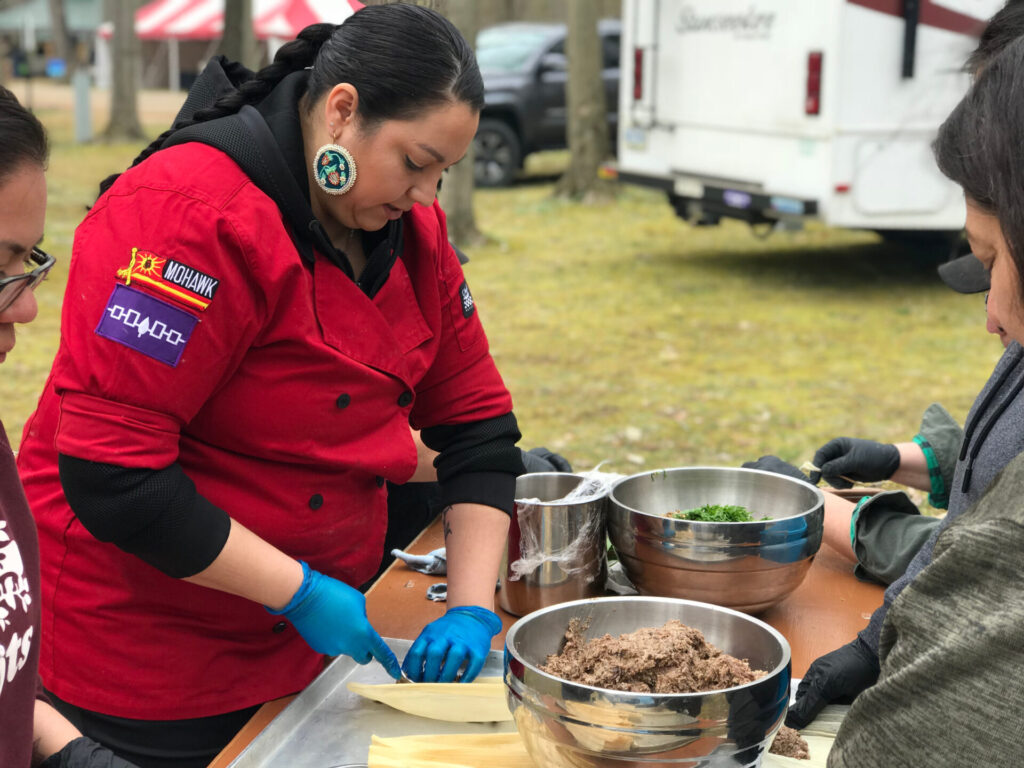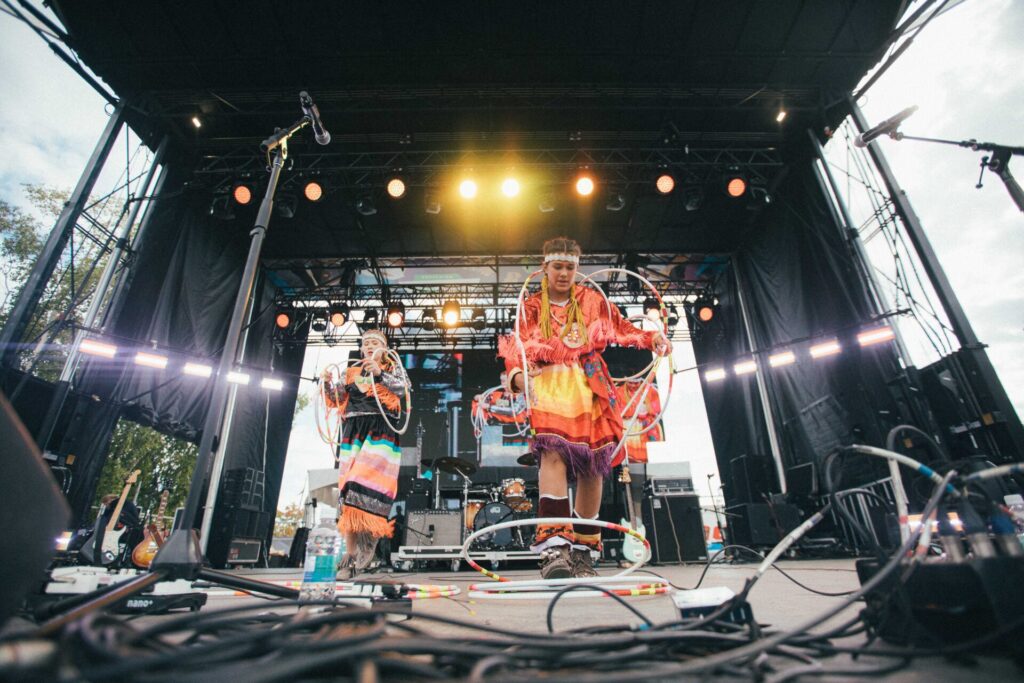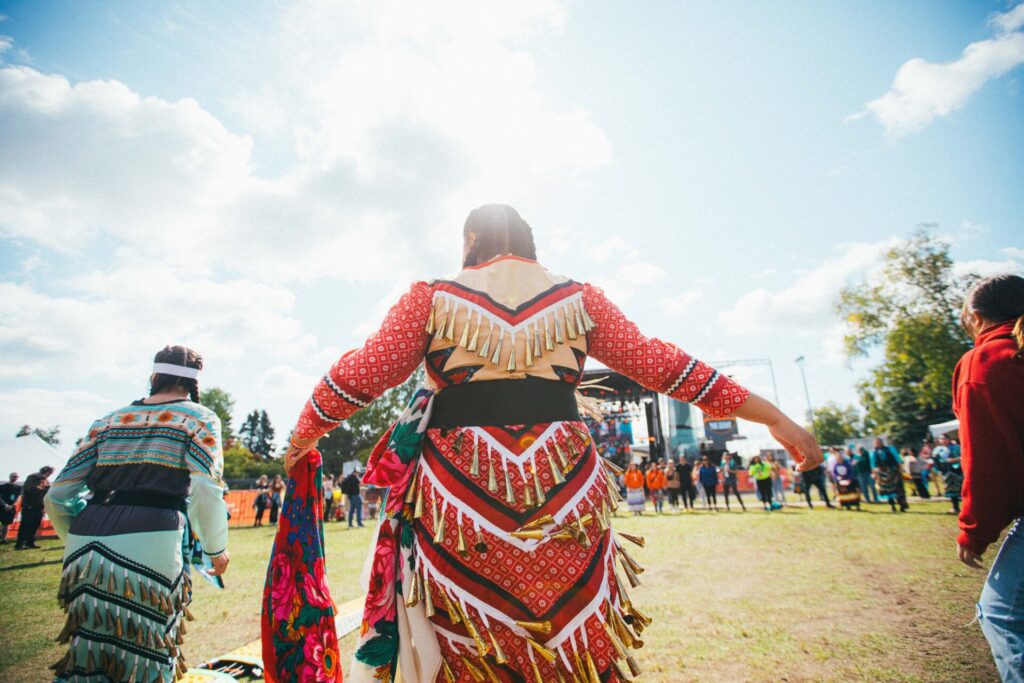Summer is a time for outdoor festivals and Ontario offers at least two chances to get outside and learn, celebrate and embrace Indigenous culture. The Summer Solstice Indigenous Festival, a multidisciplinary arts festival that celebrates Canada’s diverse Indigenous cultures, takes place June 21-23, 2024 in Ottawa, and the Wake the Giant festival, which welcomes Indigenous youth from the North to Thunder Bay, is a week-long event that culminates in a big-name concert on September 14, 2024.
Summer Solstice Indigenous Festival
When: June 21-23, 2024
Where: Mādahòkì Farm, 4420 West Hunt Club Rd., Ottawa
As the sun sets on the longest day of 2024, those attending the Summer Solstice Indigenous Festival will be invited to join glow-in-the-dark hoop and fancy dancers in a dance circle while taking in the beats of DJ Shub and the moves of activist and hoop dancer Theland Kicknosoway.
That evening event, sponsored by CAA, is new to the multi-disciplinary arts festival that brings together visual artists, performers, educators, students, chefs and community members to celebrate Canada’s diverse Indigenous cultures. The entire festival takes place at Mādahòkì Farm, which means “to share the land” in Anishinaabe and which is home to Ojibway Spirit Horses, which are Canada’s only Indigenous horse breed.
“A lot of our very popular elements are returning, like the powwow and the celebration stage and the family fun zone,” said Trina Simard, CEO of Indigenous Experiences. “And we’re really excited about the [new] glow-in-the-dark dance party after the powwow.”

In addition to the evening programming, guests buy tickets for a long-table lunch or dinner on opening day, featuring the cuisine of Tawnya Brant, a chef from Ontario’s Six Nations and a former Top Chef Canada contestant.
“We’re happy the 21st is on a Friday, so we’ve really amped the programming on that day,” Simard says.
Between interactive stations and the family fun zone, festival-goers will find hatchet throwing, Inuit games, birds of prey and quill work demonstrations, wigwam building, inukshuk building, farm games and animal visits, storytelling, and a chance to meet the farm’s Ojibway Spirit Horses, which are Canada’s only Indigenous horse breed.
The festival will also feature Inuit throat singers, a Metis dancer, storytellers, authors and more hoop dancers.
CAA also sponsors the Summer Solstice Indigenous Music Awards, which take place every second year. This year, past winners, including Logan Staats, Northern Crree, DJ Shub and Twin Flames, are on a tour and will appear at the festival.
Wake the Giant
When: Sept. 14, 2024
Where: Thunder Bay Waterfront
Wake the Giant is “a giant welcoming event for Indigenous youth travelling from the North of Canada.”
That’s how festival volunteer Sean Spenrath describes the festival as the product of Dennis Franklin Cromarty High School. A unique school for Indigenous youth, it services 24 remote communities, where schooling often ends at Grade 9 or 10. If the children from those communities want to continue their education, they can go to Sioux Lookout, Thunder Bay public school, or Dennis Franklin Cromarty, which follows Indigenous culture and ways of learning and can, therefore, be less culturally shocking for students who are far from home for the first time.

The music event on Sept. 14 is the culmination of three days of orientation, during which the new students get a “crash course” on life in Thunder Bay. On the first day, they navigate the bus system in an Amazing Race-style competition. On the second day, they do interactive workshops with Indigenous mentors, some of whom are festival performers, while others could be chefs, tech workers or scientists, for example. The last day is Wake the Giant, which has attracted names like Arkells, Galantis, DJ Shub and Coleman Hell this year.

Shub offered a workshop at the school last year, and he and some students wrote a song they’ll perform on stage that may even appear on Shub’s next album. Other students, such as the school’s jingle-dress dancers, will also perform that day. Between acts, organizers share knowledge about Indigenous culture with the audience.
“We use the festival to educate people and expose everyone to Indigenous culture,” explains Spenrath, who is a teacher at the high school and one of the organizers. “We pull some pretty big names. A lot of people are drawn to the cause. It’s super exciting.”

The music festival, which CAA sponsors, is free for the students, and they also eat at the various concessions on site for free.
“We just want them to feel like rock stars that day,” Spenrath says. “It’s also a chance for the rest of the Thunder Bay community to reach out and welcome these kids.”

